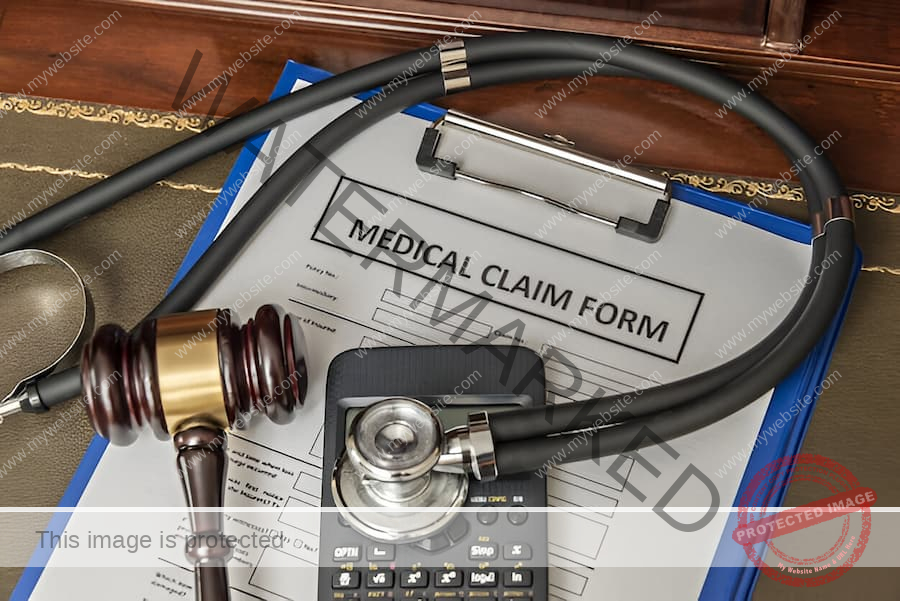Medical Claims – In personal harm regulation, healthcare claims are vital because they provide proof to connect a wound to a particular prevalence or negligent behaviour. To determine truthful compensation, those claims are crucial in establishing the severity of injuries, vital hospital treatment, and the lasting impact on a sufferer’s existence. A stable case is built on the inspiration of medical statistics, specialist views, and treatment costs. It will become difficult to demonstrate the quantity and cause of the injury in the absence of suitable medical documentation. Having thorough medical evidence to back up your claim for non-public damage is important in case you’re pursuing a medical negligence claim Manchester.
Evidence of Injury
The occurrence of an injury is verified by professional, tangible documents provided by medical claims. Even if a sufferer’s testimony is essential, it could not be credible in court if there is no medical proof. Diagnostic exams, MRI scans, X-rays, and clinical facts all provide indisputable proof of the damage and help validate the criticism.
Determining Causation
A key aspect of the law regarding non-public accidents is causation. It must be confirmed that the occasion or incident in question was the real reason for the damage. By connecting the damage to the incident, medical claims assist in creating a chronology of signs and therapies. Records can provide proof of causality, for example, if someone has neck pain just after a car accident and seeks medical help.
Assessing the Severity
In phrases of severity and lengthy-time period outcomes, not all injuries are created same. A thorough summary of the severity of a wound, from small scratches to life-threatening damage, is offered by way of scientific claims. These data, which can be important for identifying how a lot money is due, consist of check findings, medical doctors’ evaluations, and complete descriptions of the accidents.
Figuring Out Medical Costs
Medical costs directly related to the harm caused are frequently covered by personal injury compensation. Every expense, including ER visits, surgeries, rehabilitation, and prescription drugs, is recorded in medical claims. This makes it possible to make a more precise and well-founded financial claim against the accountable party.
Supporting Future Costs
The sufferer will frequently require current or future medical care, particularly for therapy, persistent pain, or permanent impairment. Medical claims incorporate doctors’ suggestions for future care in addition to information about previous therapies. These insights are essential for projecting future costs and obtaining payment for them.
Supporting Earning Capacity or Income Loss
A man or woman’s capacity to make a living is impacted while a harm continues them from operating, either temporarily or permanently. These assertions are supported through scientific statistics that attest to the damage’s effect on mental fitness, cognitive characteristics, or locomotion. They also help in figuring out whether the person can ever return to their previous line of work or how long they is probably capable of work.
Increasing Credibility
Medical claims offer expert, third-party descriptions of a victim’s illness, which greatly increases the claim’s validity. Health records provide unbiased confirmation from qualified experts when defence lawyers or insurance businesses doubt the veracity of an injury claim.
Educating Legal Strategy
Medical claims are an important component of the preparation that lawyers do for discussions or trials. They can create a successful legal approach by using these documents to better comprehend the type and severity of the injury. When deciding whether to settle or pursue dispute resolution, the lawyer is guided by the specifics of medical claims.
Exhibiting Suffering and Pain
One type of non-monetary harm that is more difficult to measure is “pain and suffering.” However, the perpetrator’s story can be supported by medical claims, such as doctor’s records on pain levels, pain medication prescriptions, and psychiatric counselling appointments. The strength of the non-economic losses claim increases with the comprehensiveness of the medical documentation.
Rebutting Defence Claims
The defence may contend that the injury was already present or unrelated to the occurrence in question in a number of personal injury instances. Comprehensive medical records can be used to disprove these claims, particularly those that start right after the incident. They provide a precise chronology of the onset of signs and their development after the injury.
Fulfilling Legal Obligations
Authorities frequently need medical evidence as part of the legal procedure in personal injury cases. Medical records may be crucial for filing deadlines, legal definitions of “serious injury,” and other procedural aspects. A case may be dismissed if medical allegations are not presented in a timely and organised way.
Participating in Settlement Talks
These discussions have a solid basis in medical claims. The medical records are examined by competing lawyers and insurance adjusters in order to determine the case’s worth. Since they lessen uncertainty and legal problems for the other party, strong, regular, and thorough medical claims frequently lead to greater settlement proposals.
Final words
A fundamental aspect of personal injury law is medical claims. They are essential instruments for demonstrating harm, demonstrating culpability, figuring out losses, and eventually guaranteeing victims achieve justice.
Visit Hooyam for more informative blogs.







